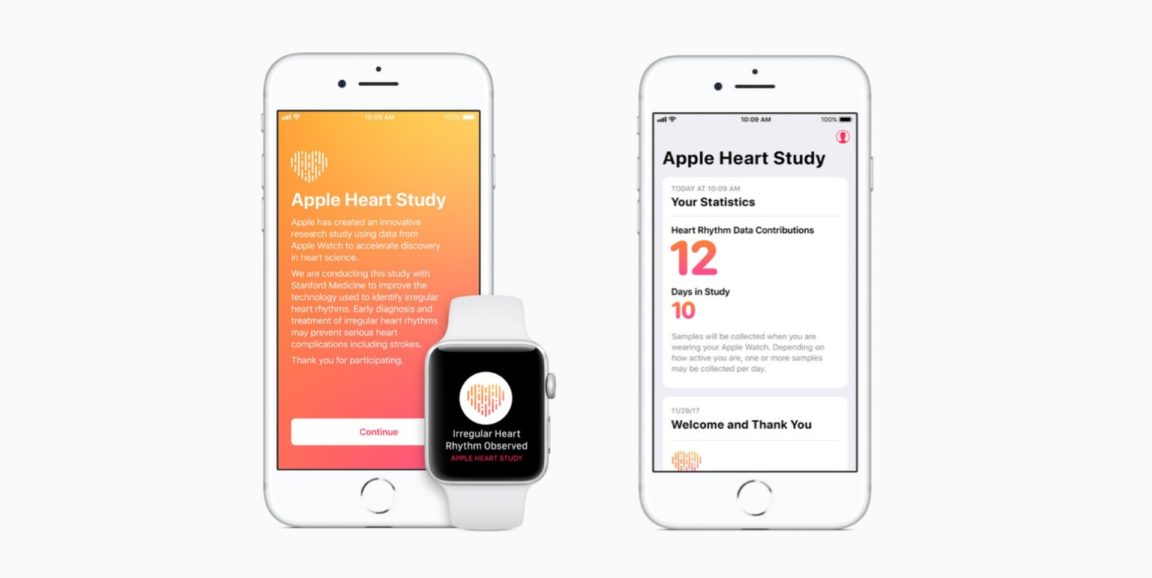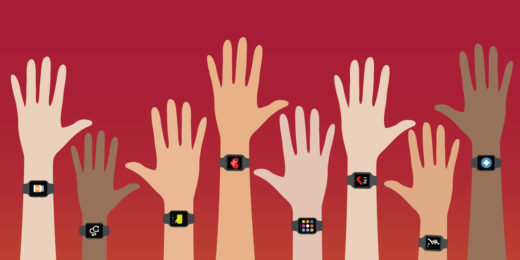What if your smartwatch — or another digital device you wear daily — could identify when an irregular heart beat could be a sign of something more serious?
New research from the Apple Heart Study suggests that it can.
Stanford Medicine researchers today presented preliminary findings of the unprecedented virtual study of more than 400,000 participants. The results show that a mobile app using data from a heart-rate pulse sensor on the Apple Watch was able to flag irregularities that subsequent testing confirmed to be atrial fibrillation — a condition that can lead to blood clots, stroke, heart failure and other complications, but that often remains hidden because many people don’t experience symptoms.
In a news release, Dean Lloyd Minor, MD, noted the significance of the research:
The results of the Apple Heart Study highlight the potential role that innovative digital technology can play in creating more predictive and preventive health care… Atrial fibrillation is just the beginning, as this study opens the door to further research into wearable technologies and how they might be used to prevent disease before it strikes — a key goal of Precision Health.
Launched in November 2017 with sponsorship and funding from Apple, Inc., the study aims to help clinicians and patients understand how wearable technology can safely enable people to understand their own potential health issues.
Apple Watch’s optical sensor tracked participants’ heart rates, and the Apple Heart Study app intermittently checked for an irregular measurement. If one was detected, the participant received a notification, was asked to schedule a telemedicine consultation through a company called American Well, and was then sent ambulatory electrocardiography patches from BioTelemetry to record the electrical rhythm of their hearts for up to a week.
As the release explains, less than one percent of study participants received notification of an irregular pulse — “an important finding given concerns about potential over-notification.”
Also of note: “Eighty-four percent of the time, participants who received irregular pulse notifications were found to be in atrial fibrillation at the time of the notification.”
These and other results from the study advance the conversation about wearable technology in health care, said Mintu Turakhia, MD, associate professor of cardiovascular medicine and a principal investigator on the study:
The study’s findings have the potential to help patients and clinicians understand how devices like the Apple Watch can play a role in detecting conditions such as atrial fibrillation, a deadly and often undiagnosed disease…The virtual design of this study also provides a strong foundation upon which future research can be conducted to explore the health implications of wearable technology.
Photo courtesy of Apple






